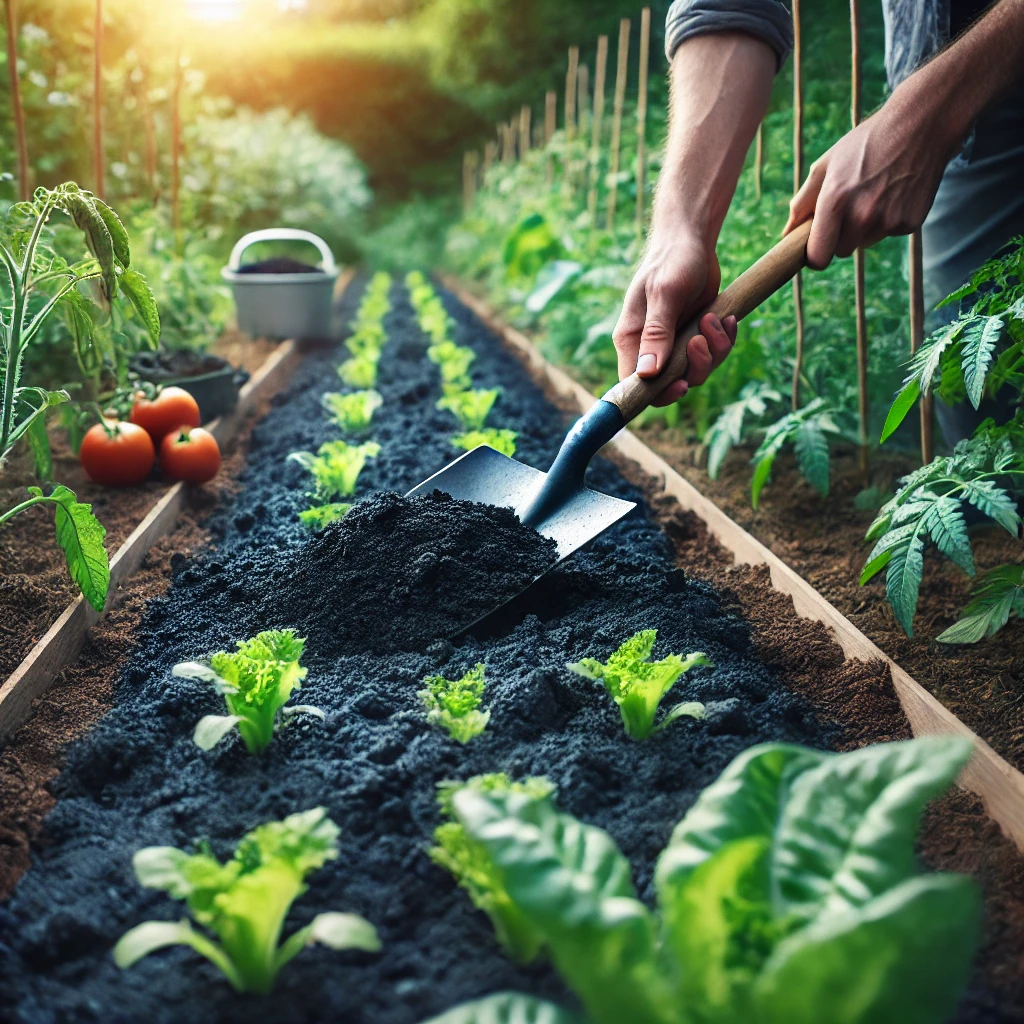As sustainable agriculture gains momentum, biochar is making a remarkable comeback as a soil-enhancing solution. This carbon-rich material, once used by ancient civilizations, is now being refined with modern technology to improve soil fertility, boost plant resilience, and promote sustainable farming. With benefits like enhanced water retention, improved nutrient absorption, and long-term soil health, biochar is shaping the future of eco-friendly gardening.
1. What is Biochar?
Biochar is a form of charcoal produced by heating organic materials, such as wood, crop residues, or manure, in a low-oxygen environment. This process, known as pyrolysis, stabilizes carbon and creates a highly porous material that can be mixed into soil. Unlike traditional compost, biochar remains active in the soil for centuries, continuously improving its quality.
Biochar’s unique structure allows it to trap nutrients, retain moisture, and provide a habitat for beneficial microbes, resulting in healthier plants and more productive soil.
2. How Does Biochar Work?
When added to soil, biochar acts as a natural enhancer that improves soil structure and optimizes plant growth. The process works as follows:
- Raw organic material is heated through pyrolysis to create biochar.
- Biochar is “charged” by mixing it with compost, manure, or other nutrient sources before being added to the soil.
- The porous structure of biochar retains water and nutrients, making them readily available to plant roots.
- Microbial activity increases, as biochar provides an ideal environment for beneficial soil organisms.
- Over time, soil fertility improves, leading to stronger, healthier plants with less reliance on chemical fertilizers.
3. Advantages of Biochar-Infused Soil
Biochar offers a range of benefits over traditional soil amendments, making it an ideal choice for sustainable gardening and farming:
- Enhanced Soil Fertility – Biochar binds nutrients, preventing them from washing away and making them more accessible to plants.
- Improved Water Retention – Its porous nature helps soil hold moisture, reducing the need for frequent watering.
- Boosted Microbial Activity – Biochar fosters beneficial bacteria and fungi, creating a thriving underground ecosystem.
- Carbon Sequestration – By locking carbon into the soil, biochar helps combat climate change by reducing CO₂ emissions.
- Reduced Soil Acidity – Biochar can help balance pH levels, making soil more suitable for a wider range of plants.
4. Ideal Uses for Biochar
Biochar can be used in various agricultural and gardening settings, including:
- Vegetable gardens – Improves nutrient retention and reduces water stress for crops like tomatoes, peppers, and leafy greens.
- Ornamental plants & flowers – Enhances soil structure for healthier, more vibrant blooms.
- Tree planting – Helps young trees establish strong root systems by improving soil aeration and moisture retention.
- Greenhouse & urban farming – Supports sustainable growing methods by reducing fertilizer and water needs.
5. The Future of Biochar in Smart Agriculture
As smart farming technologies evolve, biochar is being integrated into modern agricultural systems:
- AI-Optimized Soil Management – Sensors analyze soil conditions and recommend biochar application for maximum efficiency.
- Biochar-Based Soil Blends – Pre-mixed soil options infused with biochar are becoming more available for home gardeners.
- Carbon Farming Initiatives – Large-scale agricultural projects are using biochar to reduce environmental impact and enhance crop production.
Conclusion
Biochar represents a perfect blend of ancient wisdom and modern innovation, offering a sustainable solution for improving soil health and plant growth. With its ability to enhance soil fertility, conserve water, and support microbial life, biochar is an invaluable tool for both home gardeners and commercial farmers. As technology advances, biochar is set to play a key role in the future of eco-friendly and resilient agriculture.

Leave a Reply